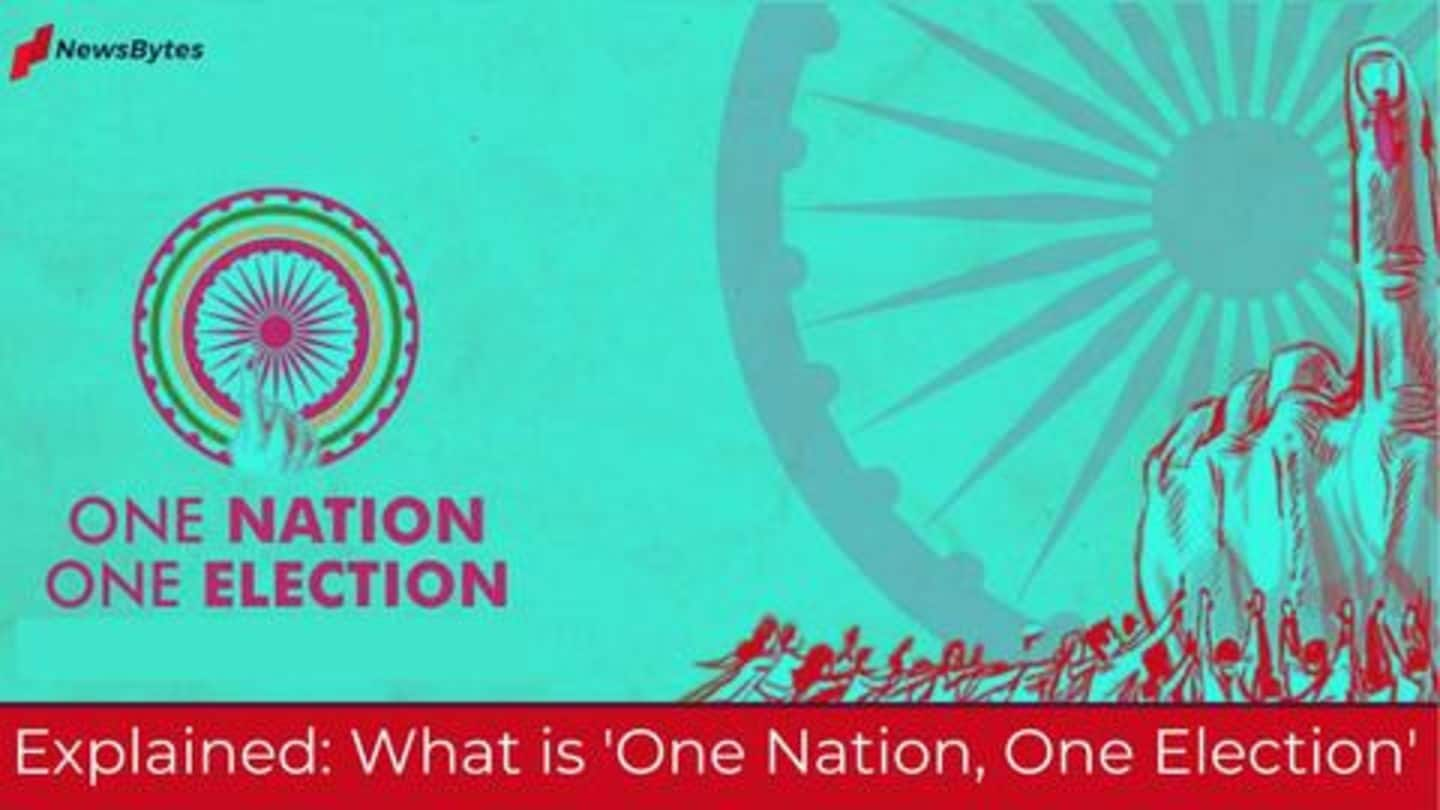
Explained: What is Narendra Modi's 'One Nation, One Election' idea?
What's the story
In a gigantic country like ours, all elections become a big deal whether it is the panchayat, municipal or Lok Sabha polls. This also means that elections happen pretty frequently, and Prime Minister Narendra Modi wants to change that. For this purpose, he is pushing his weight behind the 'One Nation, One Election' idea. Let's tell you more about this plan and its effects.
Beginning
Earlier, 'One Nation, One Election' was the norm
The 'One Nation, One Election' idea may seem new to many, but it was the norm after India attained independence. Between 1951 and 1967, Lok Sabha polls were held partially or fully along with state elections. But the smooth run was stalled after states were reorganized and governments were dismissed. After the 1970s, simultaneous Lok Sabha and assembly polls became a distant dream.
Looking back
BJP/RSS batted for holding polls, simultaneously
As the country got used to participating in frequent elections, the BJP and its ideological mentor, RSS, floated the idea of holding elections simultaneously. They revived the idea in the 1990s when BJP started getting prominence and Atal Bihari Vajpayee formed governments at Centre, thrice. In 1999, a law commission report under Vajpayee recommended holding state and national elections together.
Meeting
Last year, few parties swiped right to the idea
Thanks to BJP's thumping victory in Lok Sabha polls, 'One Nation, One Election' has returned to the limelight. Interestingly, the law commission had held an all-party meeting to ponder over this idea even last year. While AIADMK, SP, and YSR Congress supported the idea, BSP, TDP, Trinamool didn't like the proposal. Further, BJP and Congress hadn't categorically stated their preferences.
Reports
NITI Aayog came up with a formula for concurrent polls
A 2015 parliamentary committee report also suggested holding simultaneous elections. This report was formed under the chairmanship of Congress' Rajya Sabha MP EM Sudarsana Natchiappan. Notably, NITI Aayog also came up with a formula regarding this. The body suggested holding simultaneous Lok Sabha and assembly polls in two phases by 2021. 2019 elections were also included in the plan, but it didn't take off.
Statement
Ex-CEC said Election Commission is ready for simultaneous polls
Meanwhile, in October 2017, Chief Election Commissioner OP Rawat said the Election Commission is capable of holding simultaneous polls, but the decision has to be taken on a political level. Apparently, for 'One Nation, One Poll' to be turned into a reality, changes will have to be made in a couple of laws. For this, BJP needs the support of other parties.
Amendments
Centre will have to amend certain laws
The articles which will need to be amended are-- Article 83 (pertaining to duration of Houses of Parliament), Article 85 (dealing with the dissolution of Lok Sabha by the president), Article 172 (which relates to the duration of state legislatures), Article 174 (concerning the dissolution of state assemblies), and Article 356 (which is about President's Rule). Separately, Representation of People Act, 1951 would also require some changes.
Benefits
India can save tons of money by holding polls together
Holding simultaneous elections isn't a bad idea after all, as the first thing it will do is reduce expenditure. The recently-concluded general elections were the costliest ever. To woo the 900 million voters of the nation, political parties spent a whopping Rs. 60,000 crore. For perspective, the US spent some Rs. 45,000 crore in 2016 presidential elections.
Information
Fewer polls means less time spent on campaigning
Moreover, simultaneous elections will help in making the government more efficient. Less frequent polls would mean that our leaders would spend less time in campaigning. It will also speed up the administrative processes as government officers won't be caught up with elections.
Meeting
Separately, several parties will skip PM Modi's all-party meeting
Now, the idea seems noble but it hasn't found many takers. PM Modi's all-party meet is being boycotted by parties like Congress and Trinamool. Representatives of TRS, TDP, and AAP are expected to mark their presence at the meeting. BSP Chief Mayawati is also skipping the meet. She said she would have attended the meet had it been called to discuss "EVM issue".